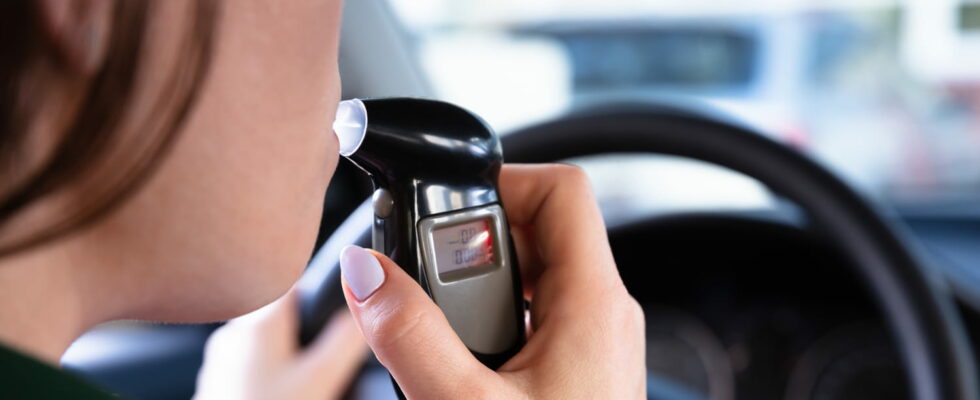“Drink or drive, you have to choose” insists Road Safety.
Drunk driving is one of the leading causes of road deaths. This is why, in France, road regulations set a legal alcohol limit above which it is prohibited to drive under penalty of penalties. Under alcohol, our reaction time increases, our alertness decreases, we have difficulty perceiving the risks and we have difficulty coordinating our movements, which increases the risk of an accident. We put ourselves in danger and we put others in danger.
The threshold is lower for holders of a probationary license, those in a learning situation and public transport drivers: 0.2 g/l of blood or 0.10 mg/l of exhaled air. For other drivers, French law states that it is prohibited to drive with a blood alcohol level higher than or equal at 0.5 g/l of blood or 0.25 mg/l of expired air.
► Driving with a blood alcohol level equal to or greater than 0.5 g/l and less than 0.8 g/l (or 0.2g/l for the people mentioned above) is punishable by a fine of up to the 750 euros. As a general rule, this is a fixed fine of 135 euros, reduced to 90 euros if paid within 15 days. The vehicle may be immobilized. In total, 6 points are removed from the driving license. Administrative suspension of the driving license is possible for up to 6 months. If you are found drunk and you refuse to comply, you may be placed in police custody or in a sobering up cell.
► Driving with an alcohol level equal to or greater than 0.8 g/l of blood (0.40 mg of alcohol per liter of exhaled air) is an offense. The fixed fine can reach 4,500 euros. Your vehicle is immobilized and impounded upon authorization from the prefect or the public prosecutor. Also, 6 points are removed from your driving license, which can be suspended for up to 3 years.
Refusing to submit to alcohol screening does not constitute an offense, but an offense punishable by the same penalties as driving under the influence of alcohol. In the event of an accident under the influence of alcohol, your insurance company has the right to apply sanctions such as increasing your contributions or terminating your contract.
Even if the authorized blood alcohol level is not exceeded, the driver can be penalized if he drives in a state of obvious intoxication. It is enough for the driver to show signs of intoxication, such as slurred speech, blurred eyes, repetitive incoherent speech, balance problems or an inability to blow into the breathalyzer (apart from physical incapacity following an accident, tracheotomy…). In this case, the penalties provided for are almost the same as driving under the influence of alcohol.
The maximum alcohol level is reached 15 minutes after drinking the alcohol if you are fasting and one hour after absorption if the alcoholic beverage is ingested during a meal. Blood alcohol levels decrease on average by 0.10 g to 0.15 g of alcohol per liter of blood in 1 hour. The glasses are calibrated to have the same dose of alcohol: a glass of wine contains as much pure alcohol as a glass of liqueur. The ideal is therefore to make a choice, because “Even a small dose of alcohol causes paradoxical and dangerous reactions, especially if you drive at night or in winter. There is no safe way to drink alcohol“, she concludes.
